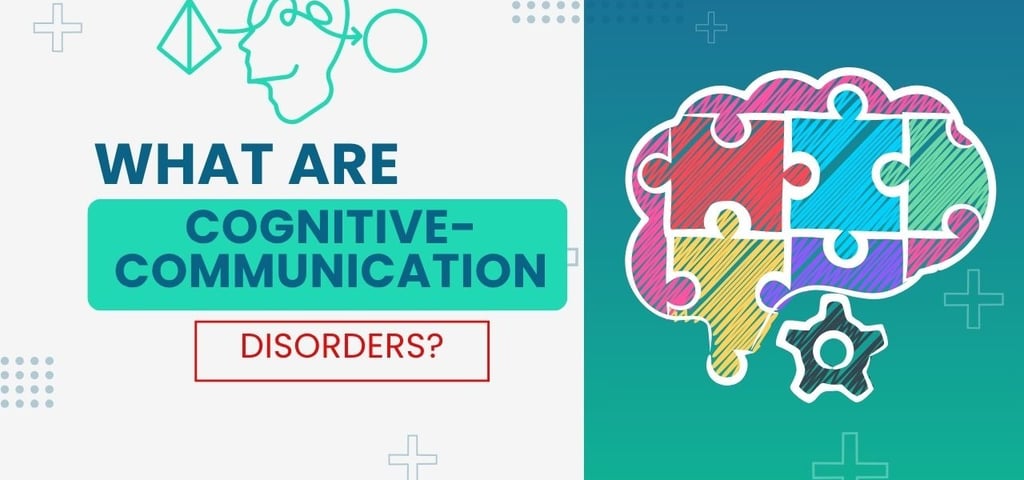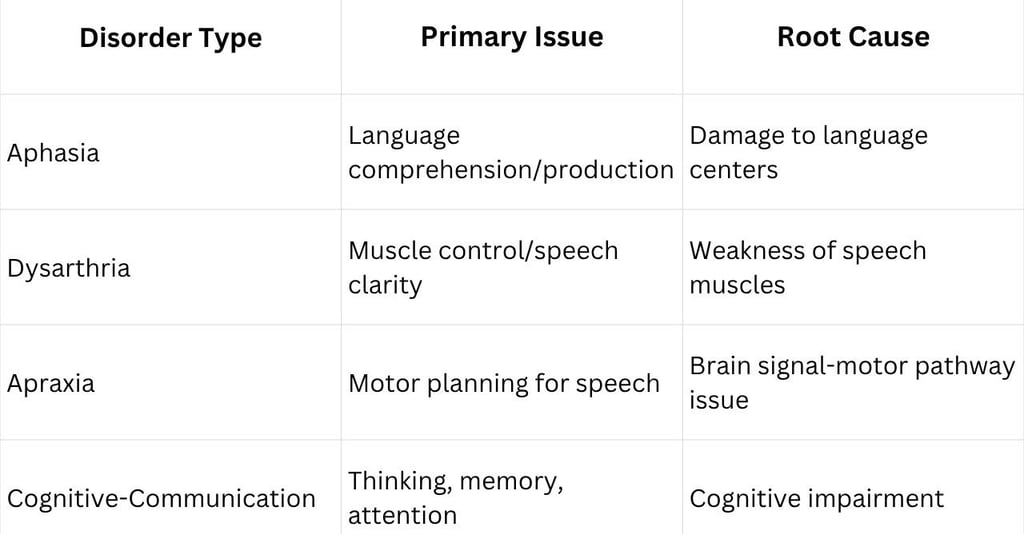Online Speech Therapy Platform
What Are Cognitive-Communication Disorders?
Understanding the Link Between Cognition and Communication
COGNITIVE-COMMUNICATION DISORDERS
selvakumar
7/23/20252 min read


🔍 Introduction
Cognitive-Communication Disorders are conditions that affect a person’s ability to think, remember, speak, and interact socially — all at once. Unlike speech or language disorders that target specific areas of communication, these disorders are rooted in cognitive impairments caused by damage to the brain.
They are commonly seen in adults following stroke, traumatic brain injury (TBI), dementia, Parkinson’s disease, or other neurological illnesses. Early diagnosis and targeted therapy can significantly improve outcomes.
🧠 What Is a Cognitive-Communication Disorder?
A Cognitive-Communication Disorder occurs when brain-based impairments affect the mental processes needed for effective communication. These include:
Attention
Memory
Reasoning
Problem-solving
Executive functions (planning, organizing, self-monitoring)
When any of these processes are disrupted, everyday communication becomes difficult — whether it’s understanding others, responding clearly, or remembering information.
🚨 Common Causes of Cognitive-Communication Disorders
These disorders are usually the result of neurological damage. Some of the most common causes include:
Stroke
Traumatic Brain Injury (TBI)
Brain tumors
Dementia and Alzheimer’s disease
Parkinson’s disease
Multiple Sclerosis (MS)
Each condition affects the brain differently, but they all interfere with how we process and express information.
🧩 Symptoms to Watch Out For
Cognitive-communication disorders can show up in many ways. Individuals may:
Struggle to stay on topic during conversations
Frequently forget appointments or recent events
Have difficulty understanding jokes, sarcasm, or indirect language
Seem disorganized when speaking or writing
Misinterpret information or instructions
Become easily distracted
These challenges can affect relationships, job performance, and daily decision-making.
🔄 How Is It Different From Other Speech Disorders?
While aphasia, dysarthria, and apraxia also impact communication, cognitive-communication disorders are more about how the brain processes information than about the mechanics of speech or language.


💡 Can Therapy Help?
Yes! Speech-language pathologists (SLPs) are trained to assess and treat cognitive-communication disorders. Therapy may include:
Memory strategies
Problem-solving exercises
Attention training
Real-life communication tasks
Family and caregiver education
Platforms like Tellomeet provide online access to certified therapists who specialize in neuro-rehabilitation.
🌐 Why Awareness Matters
These disorders often go undiagnosed or are misunderstood as personality changes. Raising awareness is crucial for:
Timely diagnosis
Targeted treatment
Improved quality of life
📌 Conclusion
Cognitive-Communication Disorders are more than just speech issues — they are complex conditions that affect how we think, understand, and connect with others. With the right therapy and support, many individuals regain their independence and communication skills.
If you or a loved one are facing challenges after a stroke or brain injury, early evaluation and online speech therapy through platforms like Tellomeet can make a difference.
